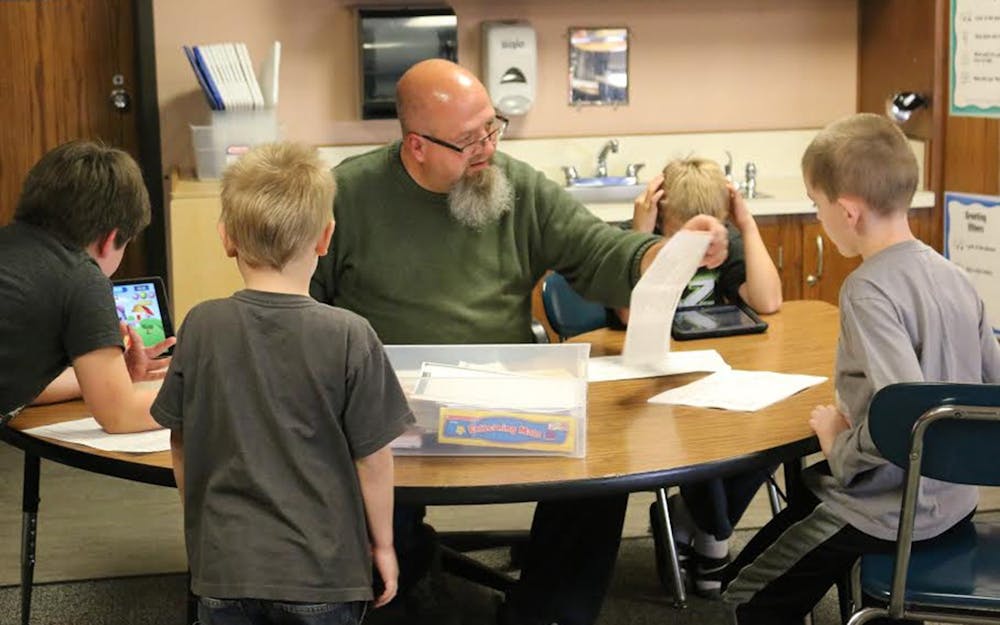An Indiana bill which would create a $150 million grant program to help students who have fallen behind in school due to the COVID-19 pandemic passed the Indiana House of Representatives with a vote of 94-2 on Feb. 2. The bill was referred to the Indiana Senate on Feb. 3.
The money from House Bill 1008 will be allocated to programs that provide remedial learning for students who have experienced learning loss, fallen behind in their expected grade-level skills or have scores below average benchmarks. Paul Farmer, Monroe County Education Association president, said the COVID-19 pandemic has caused some parents to lose their jobs, caused more students to experience food insecurity and eliminated opportunities for social interaction. All of these factors have caused more students to experience anxiety and do worse in school, he said.
Monroe County Community School Corporation Superintendent Judith DeMuth said in an email to the Indiana Daily Student that although schools provided hotspots, buses with WiFi and outside activation sites, all of these areas are not private and therefore can make it hard for students to focus. Some students live in areas where there isn’t cell service, she wrote.
“Students have been as diligent as their situations would allow,” DeMuth wrote. “Unfortunately, many students became frustrated or disengaged.”
Farmer said teachers have told him they are seeing more Ds and Fs, and fewer students are showing up regularly for classes compared to previous years. He said about 650 students who were enrolled in the MCCSC last school year have not returned to MCCSC classes, online or in-person.
“There is no doubt we’re going to have to have extra funding to be able to help these students get back on track,” he said. “Are we going to be able to bring them up to speed and everything like that? It’s going to be very difficult.”
Keri Miksza, chairperson for Indiana Coalition for Public Education of Monroe County, said the grants from HB1008 will most likely be used to create summer remedial programs, such as reading programs, because of the expected decrease in passing rates. These grants don’t compensate for how school funds have not been increased to compensate for inflation, however they would help educational organizations, she said.
“We’ll take money where it is given,” she said.
She said the money will probably not be used until the summer because she doesn’t expect it will be allocated until after the spring semester ends.
The groups eligible to apply for these funds are universities, community-based organizations, school corporations, charter schools, nonpublic schools and philanthropic organizations, according to the legislation. Current, prospective and retired teachers can also apply for money from this program if they develop a plan that follows the bill’s guidelines.
Farmer said he wonders if the bill is glossing over the root issues regarding the decrease in students’ productivity. COVID-19 restrictions are still going to continue into the summer and Farmer said he doesn’t know how the state will ensure the programs are not just repeating mistakes made in the past school year.
Farmer said it might be a good idea to do a survey or interview at the beginning and end of the programs financed by the state to see how students have improved, socially, mentally or educationally through these programs.
“Is it a great idea? Yes,” Farmer said. “I also don’t want us to take $150 million and just throw it out into the wind.”
MCCSC Board President Cathy Fuentes-Rohwer said she is wary of how vague the bill is regarding who grants will be awarded to. If legislators want to help students struggling because of the pandemic, they just need to send more money to public schools, she said in an email to the IDS.
“Our children need fully resourced, fully funded, excellent public schools now more than ever,” she wrote.
CORRECTION: A previous version of this article misspelled Cathy Fuentes-Rohwer’s name.




